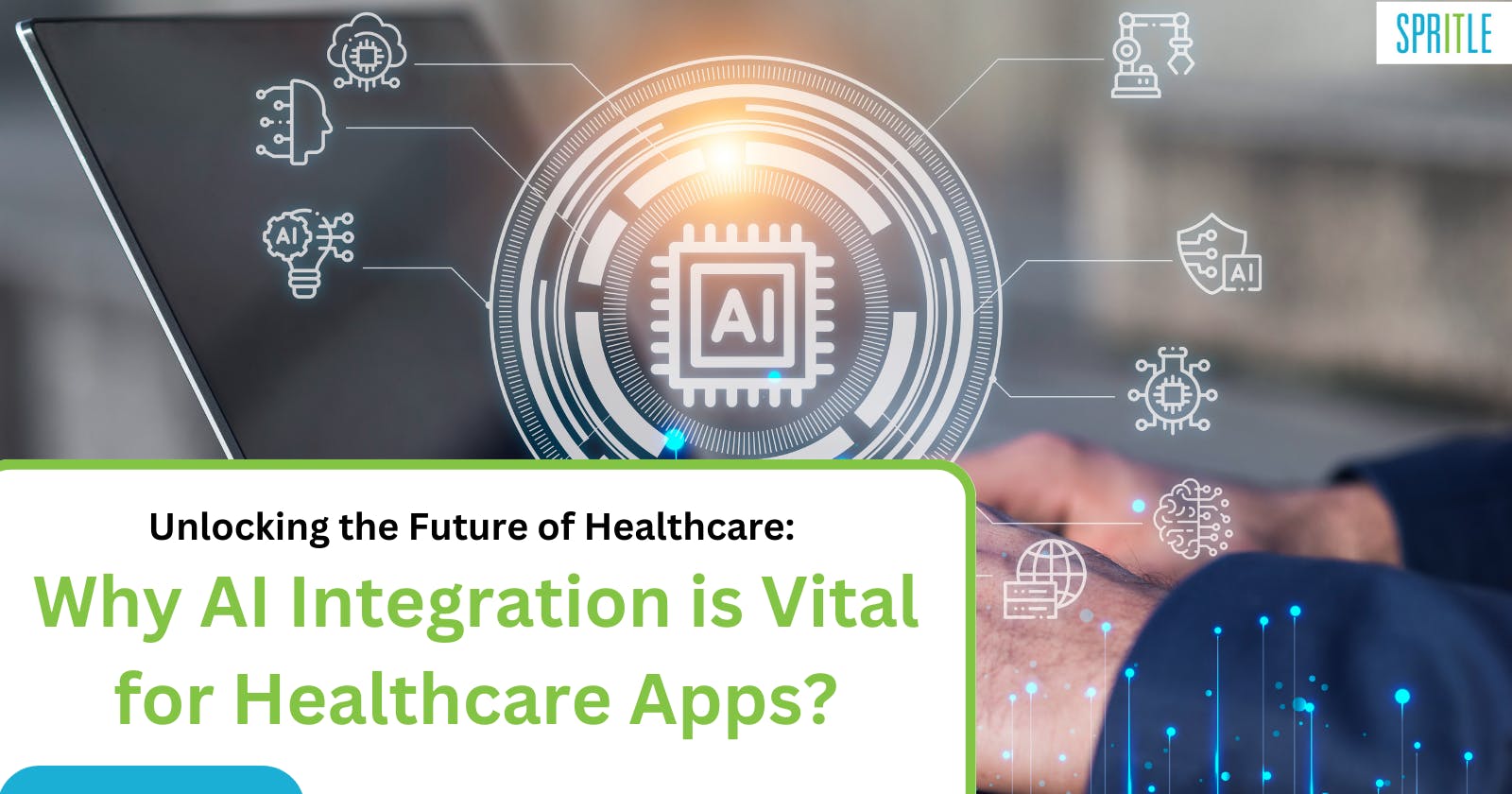Why AI Integration is Vital for Healthcare Apps?
Unlocking the Future of Healthcare:
Introduction:
In the fast-evolving landscape of modern healthcare, one term stands out, beckoning a new era of possibilities and efficiencies: Artificial Intelligence (AI). As we step into an age where technology is not just a support system but a dynamic partner in healthcare, integrating AI into healthcare apps emerges as a pivotal, revolutionary move.
Empowering Better Decision-making
AI is akin to a wise, knowledgeable advisor, aiding healthcare professionals in making well-informed decisions. By assimilating and interpreting vast amounts of data swiftly and accurately, AI can provide insights that might have taken hours or even days for a human to derive. This is especially crucial in critical scenarios where time can make all the difference.
Imagine a scenario where a patient's symptoms are perplexing, and traditional diagnoses yield no conclusive results. AI can swiftly analyze an extensive database of medical records, research articles, and clinical trials to propose potential diagnoses, aiding healthcare professionals in devising appropriate treatment plans.
Enhancing Patient Care and Experience
In the realm of patient care, AI is a game-changer. Healthcare apps integrated with AI can monitor and analyze patients in real-time, providing continuous updates to healthcare providers. From tracking vitals to spotting irregularities, AI ensures that no significant changes in a patient's condition go unnoticed.
Furthermore, AI-driven healthcare apps can offer personalized experiences for patients. Tailoring health advice, reminders for medication, and even suggesting lifestyle modifications based on individual health data are all made possible by AI. It's like having a personalized health assistant available at all times.
Accelerating Drug Discovery and Development
Historically, drug discovery has been a lengthy and arduous process. AI, however, is changing the game. By sifting through vast datasets and predicting the behavior of molecules and compounds, AI expedites the drug discovery process. This means that potentially life-saving drugs can reach patients faster, positively impacting healthcare on a global scale.
Enabling Remote Healthcare
In an era where remote healthcare is gaining traction, AI takes the spotlight once again. AI-driven healthcare apps can connect patients with healthcare providers virtually, ensuring timely consultations and care, even from the comfort of one's home. This not only expands healthcare accessibility but also allows for efficient utilization of healthcare resources.
Addressing Privacy and Ethical Concerns
While the potential of AI integration in healthcare apps is immense, it comes with responsibilities. Safeguarding patient privacy and ensuring ethical use of AI are paramount. Developers and healthcare providers must prioritize data security and adhere to ethical guidelines to maintain trust and reliability in the healthcare AI landscape.
In conclusion, integrating AI into healthcare apps is not just a technological advancement; it's a societal and cultural shift. It's about redefining the dynamics of healthcare, empowering both healthcare professionals and patients. The benefits are profound — from faster and more accurate diagnoses to personalized treatment plans and accelerated drug development, the possibilities are awe-inspiring.
AI in healthcare apps isn't just a technological marvel; it's a manifesto for a healthier, more conscious tomorrow, driven by the prowess of AI development services. It's about empowering healthcare providers and patients alike, offering a seamless healthcare journey that's all about efficiency, accuracy etc.
